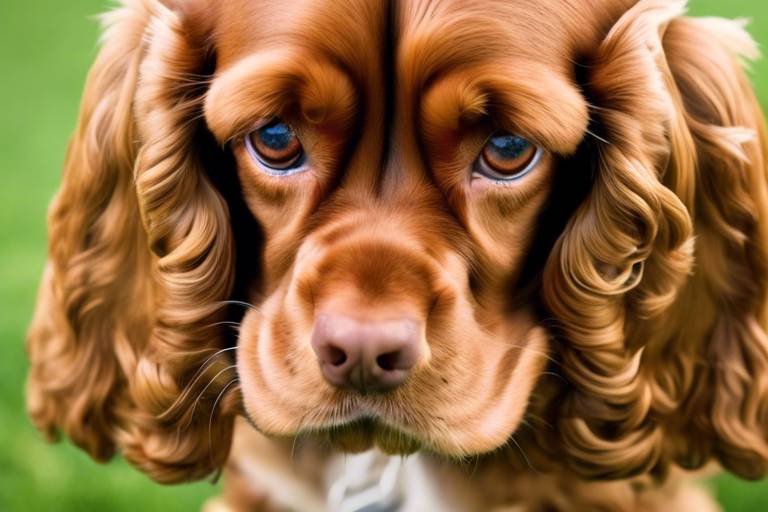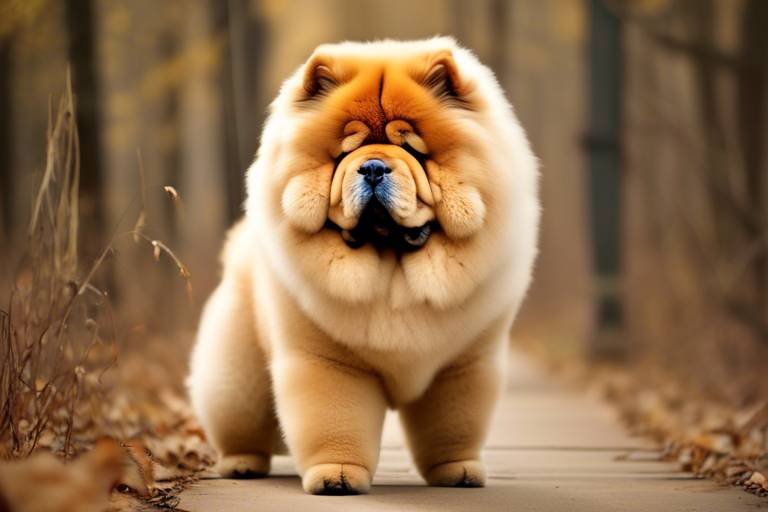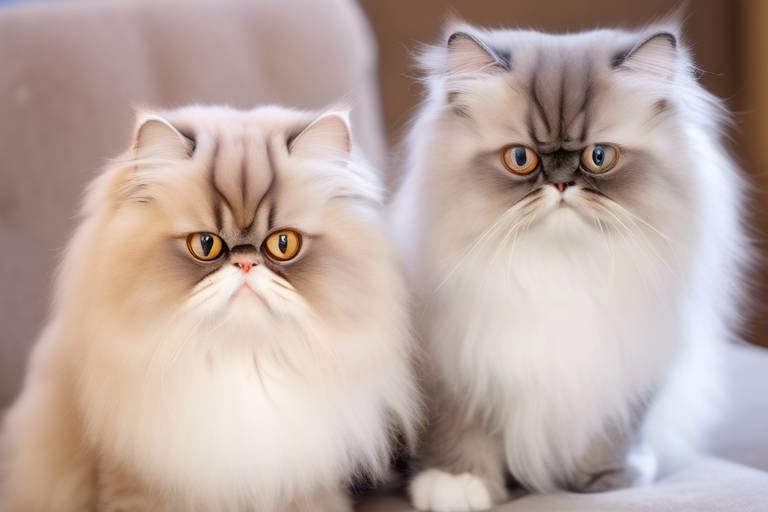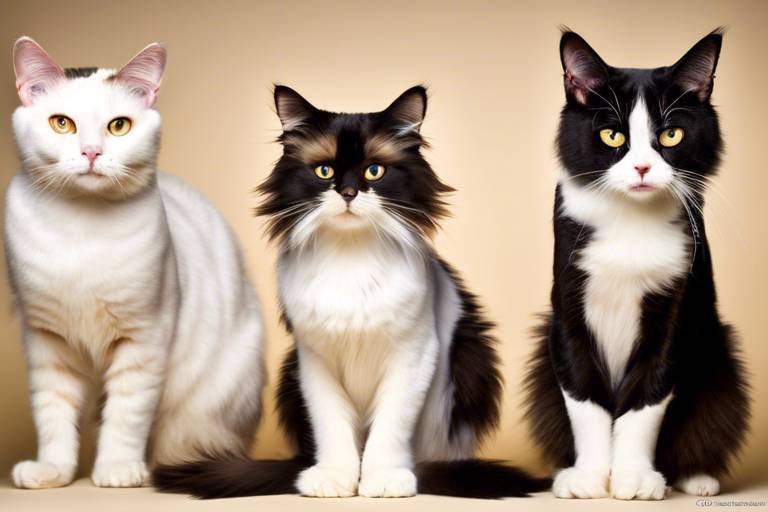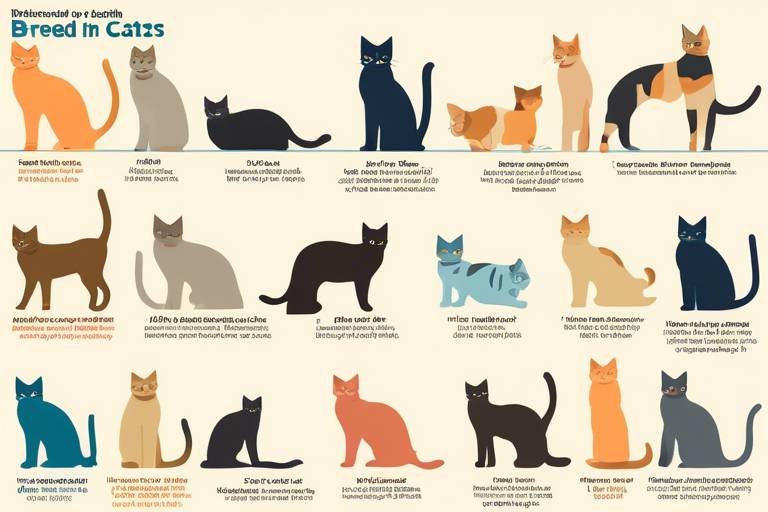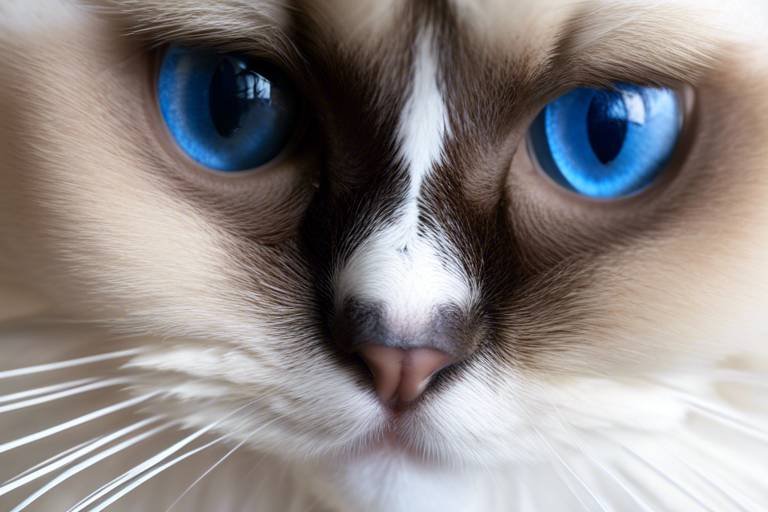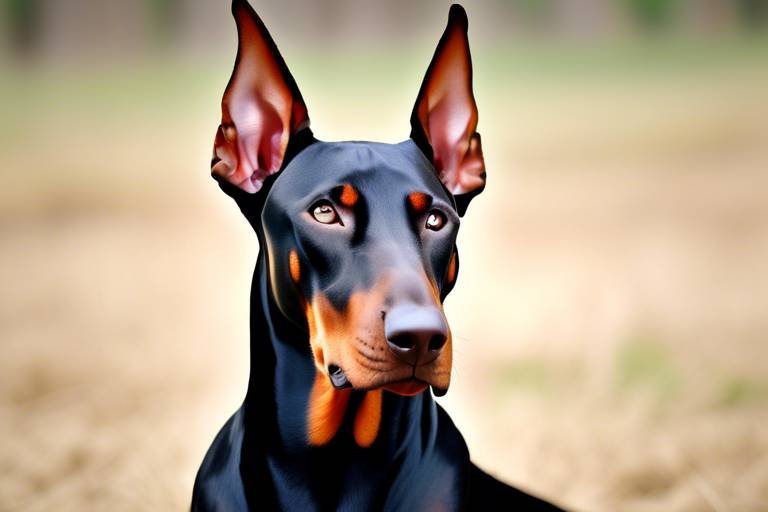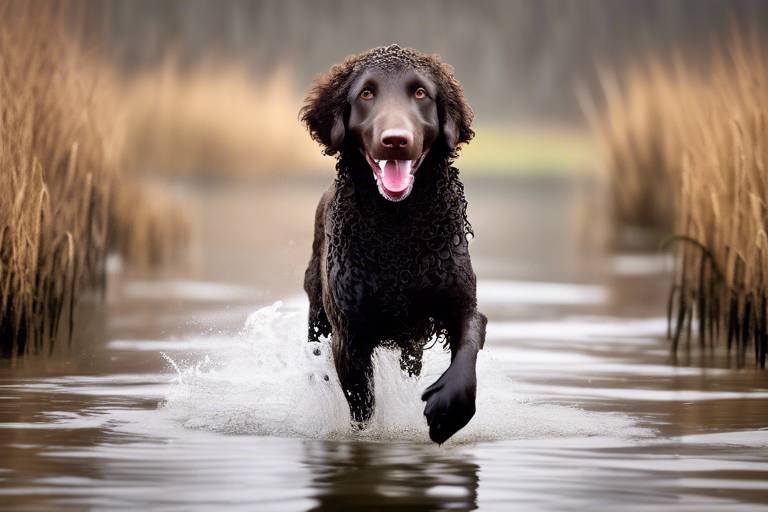The Gentle Nature of Great Danes
When you think of Great Danes, the first thing that often comes to mind is their **impressive size**. Towering over most other breeds, these magnificent dogs can easily intimidate those who encounter them for the first time. However, what many people don’t realize is that beneath that larger-than-life exterior lies a heart full of love and affection. Great Danes are often affectionately referred to as **"gentle giants"**, and for good reason. Their temperament is as grand as their stature, making them not just pets, but beloved family members.
Great Danes are known for their **affectionate nature**, often forming strong bonds with their families. They thrive on companionship and are happiest when they are surrounded by their loved ones. This breed is particularly known for its **gentleness**, making them excellent companions for both children and adults alike. Imagine a giant dog curling up next to you on the couch, resting its massive head on your lap, and looking up at you with those big, soulful eyes. It’s a sight that melts hearts and brings warmth to any home.
One of the remarkable aspects of Great Danes is their **playful personality**. Despite their size, these dogs have a youthful spirit and enjoy engaging in playtime with their families. Whether it’s a game of fetch in the backyard or a playful romp around the living room, Great Danes can bring joy and laughter to any household. Their antics can lighten the mood and create unforgettable memories, making them a delightful addition to family life.
Interactions with children are another area where Great Danes shine. They are typically **patient and tolerant**, often displaying a remarkable understanding of how to play gently with younger family members. This makes them ideal family pets, as they can interact safely and affectionately with kids. Parents can rest easy knowing that their Great Dane is not just a pet but a protective, loving companion for their children.
Moreover, Great Danes are social animals that thrive on interaction not just with humans, but also with other pets. Proper socialization is crucial for these dogs to coexist peacefully within multi-pet households. With their friendly disposition, Great Danes can often form harmonious relationships with other animals, whether they be dogs, cats, or even smaller pets. This ability to get along with others adds to their charm and makes them a wonderful choice for families with existing pets.
In conclusion, Great Danes are much more than their size suggests. They are affectionate companions with playful personalities and gentle natures that make them ideal family pets. Their ability to bond with children and socialize with other animals showcases their unique temperament. If you’re considering adding a Great Dane to your family, be prepared for a loyal friend who will fill your home with love and laughter.
- Do Great Danes shed a lot?
Great Danes have a short coat that sheds moderately. Regular brushing can help manage the shedding. - How much exercise do Great Danes need?
They require daily exercise, but their needs are moderate compared to other large breeds. Regular walks and playtime are essential. - Are Great Danes good with kids?
Yes, they are typically very good with children, displaying patience and gentleness. - What is the average lifespan of a Great Dane?
Great Danes have a shorter lifespan, usually around 7 to 10 years, due to their large size.
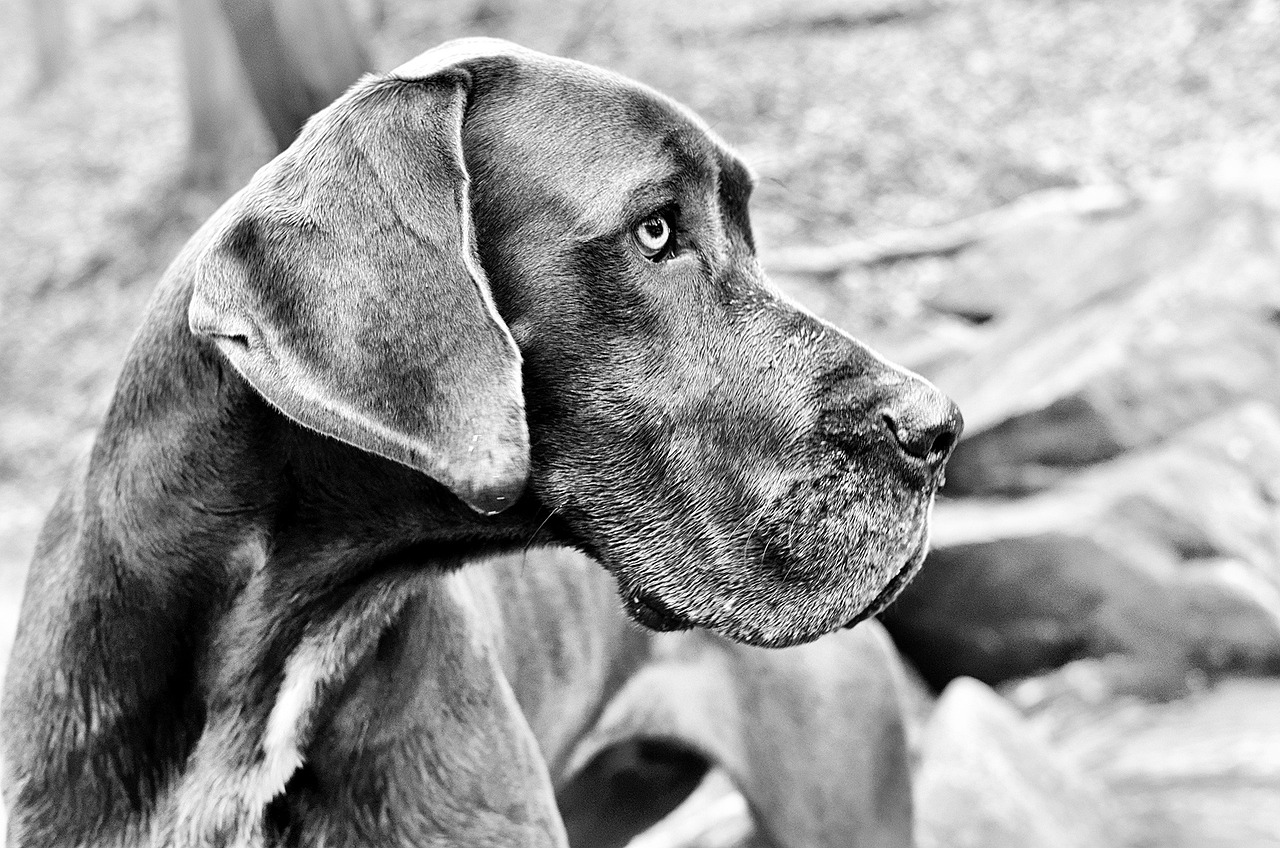
Affectionate Companions
Great Danes are not just dogs; they are that bring warmth and joy into the lives of their families. Their loving nature is a hallmark of the breed, often leading to deep, lasting bonds with their human counterparts. Imagine coming home after a long day; the moment you step through the door, your Great Dane greets you with a wagging tail and a gentle nuzzle. This kind of enthusiastic welcome is just one of the many ways these gentle giants express their love.
What makes Great Danes particularly special is their ability to connect with people of all ages. They are not just friendly; they are emotionally intuitive and can sense when someone is feeling down or stressed. Their mere presence can be comforting, offering a sense of security and companionship that is hard to find elsewhere. It's like having a giant teddy bear that not only listens but also responds with affection!
Moreover, Great Danes are known for their playful spirits. Despite their size, they possess a youthful energy that shines through in their playful antics. Whether it’s chasing a ball in the yard or playfully wrestling with their owners, these dogs know how to keep the atmosphere light and fun. Their goofy personalities can turn an ordinary day into a joyful adventure, making them perfect companions for families looking to add some laughter to their lives.
When it comes to children, Great Danes are typically patient and tolerant. Their gentle nature allows them to interact safely and affectionately, making them ideal family pets. They often become protective figures for kids, playing the role of both a friend and a guardian. This relationship fosters a unique bond, where children learn responsibility and empathy, while the Great Dane enjoys the companionship of their little humans.
However, like any breed, it’s essential to ensure that Great Danes are properly socialized. This not only helps them coexist peacefully with other pets but also enhances their ability to bond with people. A well-socialized Great Dane is a joy to be around, displaying confidence and friendliness in various situations. It’s fascinating to watch these gentle giants interact with other animals and people, often leading to heartwarming moments that can be cherished forever.
In conclusion, Great Danes are truly that enrich our lives in countless ways. Their loving nature, playful personalities, and gentle demeanor make them beloved family members. Whether you’re looking for a loyal friend, a playful partner, or a gentle protector, a Great Dane is sure to exceed your expectations.
- Are Great Danes good with children? Yes, Great Danes are typically very gentle and patient with children.
- Do Great Danes require a lot of exercise? While they do need regular exercise, their calm demeanor means they are often content with moderate walks and playtime.
- How much grooming do Great Danes need? Great Danes have short coats that require minimal grooming, but regular brushing helps reduce shedding.
- What is the average lifespan of a Great Dane? Great Danes usually live between 7 to 10 years, making regular veterinary check-ups essential for their health.

Size and Presence
When you think of a Great Dane, the first thing that often comes to mind is their **impressive size**. Standing tall and proud, these dogs can reach heights of up to 34 inches at the shoulder, with some weighing as much as 175 pounds! But don’t let their **formidable stature** fool you; Great Danes are known as **gentle giants** for a reason. Their sheer size can be intimidating to some, yet their calm and friendly demeanor quickly puts anyone at ease. Imagine a friendly giant who just wants to cuddle and play; that’s the essence of a Great Dane.
Great Danes possess a unique combination of **size and grace**. Despite their bulk, they move with a surprising elegance that captivates onlookers. Their long legs and powerful build allow them to run and play with a surprising agility. When you see one bounding across a yard, it’s hard not to smile at the sight of such a large dog enjoying life. Their presence commands attention, yet their gentle nature invites affection. It’s as if they know they’re big and use that to their advantage, offering comfort and companionship.
Many people are taken aback by how **affectionate** these dogs can be. They have an innate ability to sense the mood of their owners and often become a source of comfort during tough times. Their large bodies make them perfect for snuggling, and they often enjoy leaning against their human companions, wrapping themselves around you like a living blanket. This comforting presence can be especially beneficial for families, as Great Danes thrive on human interaction and are known to be **loyal protectors** of their loved ones.
While their size can sometimes be a challenge, it’s essential to remember that they require **adequate space** to thrive. A home with a large yard is ideal, but they can also adapt to apartment living if given enough exercise. Daily walks and playtime are crucial to keep them healthy and happy. Great Danes are social creatures and benefit from regular interaction with their families. They don’t just want to be around you; they want to be a part of everything you do.
In summary, the size and presence of a Great Dane can be both awe-inspiring and comforting. Their gentle nature, combined with their impressive stature, makes them unique companions that leave a lasting impression on everyone they meet. If you’re looking for a pet that can fill your home with love and laughter while also being a gentle protector, a Great Dane may just be the perfect fit for you!
gentle giantsThis article explores the affectionate temperament, unique characteristics, and care needs of Great Danes, showcasing why they are beloved companions despite their imposing size.
Great Danes are known for their loving nature, often forming strong bonds with their families. Their gentle disposition makes them excellent companions for both children and adults alike.
Despite their large stature, Great Danes possess a calm demeanor. Their imposing size can be intimidating, but they are often referred to as due to their friendly nature.
Great Danes have a playful side that endears them to families. Their playful antics can bring joy and laughter, making them a delightful addition to any household.
Great Danes are typically patient and tolerant with children. Their gentle nature allows them to interact safely and affectionately, making them ideal family pets.
Proper socialization helps Great Danes coexist peacefully with other pets. Their friendly disposition often leads to harmonious relationships within multi-pet households.
Training a Great Dane can be a rewarding experience. Their intelligence and eagerness to please make them responsive to commands, although consistency is key to effective training.
Like all breeds, Great Danes have specific health concerns that owners should be aware of. Regular veterinary check-ups and a healthy lifestyle can help ensure their well-being.
Great Danes are prone to certain health conditions, including hip dysplasia and bloat. Understanding these risks can help owners provide better care and preventive measures.
A balanced diet is crucial for a Great Dane's health. Owners should prioritize high-quality food to support their large size and energy levels, ensuring they maintain a healthy weight.
When you think about Great Danes, the term truly encapsulates their essence. These magnificent dogs, towering over many other breeds, have a heart that is just as grand as their size. Imagine a creature so large that it could easily intimidate, yet so sweet that it melts your heart with just a wag of its tail. Great Danes are known for their affectionate nature and calm demeanor, making them not only a sight to behold but also a joy to have around.
What sets Great Danes apart is their ability to be both protective and nurturing. They have an innate sense of loyalty, often forming strong bonds with their human companions. This breed thrives on companionship and will often follow you from room to room, ensuring they are never too far from your side. Their gentle disposition allows them to navigate the world with a grace that is surprising for their size.
Furthermore, Great Danes are remarkably patient, especially with children. Their gentle interactions can create a safe and loving environment for kids to grow up in. Picture a child playing on the floor, and a Great Dane lying beside them, watching over them like a guardian angel. This is the reality of having a Great Dane in your home.
In addition to their affectionate nature, Great Danes also have a playful side. They enjoy engaging in games and activities, and their goofy antics can lighten up the mood in any household. Whether it's chasing a ball or simply bounding around the yard, their playful nature is infectious and brings joy to everyone around them.
In summary, Great Danes are not just big dogs; they are that offer love, loyalty, and laughter. Their unique blend of size and sweetness makes them one of the most beloved breeds for families and individuals alike.
1. Are Great Danes good with children?
Yes, Great Danes are typically very good with children. Their gentle nature and patience make them ideal companions for kids.
2. How much exercise do Great Danes need?
Great Danes require regular exercise, but their needs are moderate compared to their size. Daily walks and playtime are usually sufficient.
3. What are common health issues with Great Danes?
Great Danes are prone to health issues such as hip dysplasia, bloat, and heart problems. Regular vet check-ups are essential for their well-being.
4. Do Great Danes shed a lot?
Great Danes do shed, but their short coat makes grooming relatively easy. Regular brushing can help manage shedding.
5. How can I train my Great Dane effectively?
Training a Great Dane requires consistency and positive reinforcement. Start with basic commands and gradually introduce more complex tasks.
This article explores the affectionate temperament, unique characteristics, and care needs of Great Danes, showcasing why they are beloved companions despite their imposing size.
Great Danes are known for their loving nature, often forming strong bonds with their families. Their gentle disposition makes them excellent companions for both children and adults alike.
Despite their large stature, Great Danes possess a calm demeanor. Their imposing size can be intimidating, but they are often referred to as gentle giants due to their friendly nature.
Great Danes have a playful side that endears them to families. Their playful antics can bring joy and laughter, making them a delightful addition to any household.
Great Danes are typically patient and tolerant with children. Their gentle nature allows them to interact safely and affectionately, making them ideal family pets.
Proper socialization helps Great Danes coexist peacefully with other pets. Their friendly disposition often leads to harmonious relationships within multi-pet households.
Training a Great Dane can be a rewarding experience. Their intelligence and eagerness to please make them responsive to commands, although consistency is key to effective training.
Like all breeds, Great Danes have specific health concerns that owners should be aware of. Regular veterinary check-ups and a healthy lifestyle can help ensure their well-being.
Great Danes are prone to certain health conditions, including hip dysplasia and bloat. Understanding these risks can help owners provide better care and preventive measures.
A balanced diet is crucial for a Great Dane's health. Owners should prioritize high-quality food to support their large size and energy levels, ensuring they maintain a healthy weight.
One of the most remarkable traits of Great Danes is their friendly nature. These gentle giants have an innate ability to connect with people, making them wonderful companions. Whether it's a playful romp in the yard or a cozy cuddle on the couch, Great Danes thrive on companionship. Their friendly demeanor not only extends to their human families but also to strangers, making them less likely to be aggressive or territorial.
Great Danes often display a playful spirit that can brighten anyone's day. Their goofy antics, like chasing their tails or attempting to fit into small spaces, can bring laughter and joy to any household. This playful nature is particularly endearing to children, who often find themselves captivated by the Great Dane's size and charm.
Additionally, their calm and patient temperament allows them to adapt to various living situations. Whether in a bustling family home or a quiet apartment, Great Danes are generally easygoing and can adjust to the lifestyle of their owners. Their friendly nature makes them excellent therapy dogs, providing comfort and companionship to those in need.
In summary, the friendly disposition of Great Danes not only makes them a joy to have around but also plays a crucial role in their ability to bond with their families and other pets. Their gentle nature, combined with their playful spirit, ensures that they remain beloved companions for years to come.
- Are Great Danes good with children?
Yes, Great Danes are known for their gentle and patient nature, making them excellent companions for children. - How much exercise do Great Danes need?
Great Danes require regular exercise, including daily walks and playtime, to maintain their health and happiness. - What are common health issues in Great Danes?
Great Danes are prone to conditions like hip dysplasia and bloat, so regular vet check-ups are essential. - What should I feed my Great Dane?
A balanced diet with high-quality dog food that supports their large size and energy levels is crucial.
Playful Personalities
When you think of Great Danes, you might picture a towering figure that could easily intimidate anyone who crosses its path. However, peel back that impressive exterior, and you'll discover an incredibly playful personality that makes these gentle giants truly special. It's as if they have an inner child that never quite grows up! Their playful antics can take you by surprise, whether it's a spontaneous game of chase in the backyard or a gentle nudge to get your attention. Great Danes have a knack for turning any dull moment into a joyous occasion, and their playful spirit is contagious.
Imagine coming home after a long day at work, feeling the weight of the world on your shoulders. As you step through the door, your Great Dane bounds toward you, tail wagging furiously, ready to lift your spirits. This breed has an innate ability to sense your emotions and respond with exuberance that can instantly brighten your mood. Their playful nature isn't just limited to their owners; they thrive on interaction and love to engage with anyone willing to join in on the fun.
Great Danes are known for their silly antics. You might find them trying to fit into the smallest of spaces, or perhaps they’ll perform a goofy dance when they see their favorite toy. Their playful behaviors often include:
- Playful Barks: Their vocalizations can range from soft whines to playful barks, often signaling their excitement to play.
- Zoomies: You may witness a sudden burst of energy where they sprint around the house or yard, often referred to as the ‘zoomies’.
- Fetch Fanatics: Great Danes love a good game of fetch, and their size allows them to cover ground quickly, making it even more fun!
Despite their size, these dogs have a surprising gracefulness when they play. Watching a Great Dane leap into the air to catch a frisbee is a sight to behold! Their playful nature is not just entertaining; it also serves as a vital aspect of their overall well-being. Engaging in play helps them burn off excess energy and stay mentally stimulated, which is essential for a breed that can be prone to boredom.
Moreover, the playful personality of Great Danes makes them excellent companions for families. They are incredibly tolerant and patient, often forming bonds with children that are heartwarming to witness. Their playful interactions can foster a sense of responsibility and empathy in young ones, teaching them the importance of caring for another living being. Great Danes often adapt their play style to suit their playmates, whether it’s a gentle game with a toddler or a rough-and-tumble match with older kids.
In conclusion, the playful personalities of Great Danes are a significant part of what makes them such beloved companions. They bring joy, laughter, and a sense of adventure into our lives. Their ability to balance playfulness with a calm demeanor is a testament to their unique nature as gentle giants. So, if you're considering adding a Great Dane to your family, be prepared for a lifetime of fun and cherished moments!
- Do Great Danes require a lot of exercise? Yes, they need regular exercise to maintain a healthy weight and prevent boredom. Daily walks and playtime are essential.
- Are Great Danes good with children? Absolutely! They are known for their gentle and patient nature, making them excellent family pets.
- How much do Great Danes eat? Due to their size, they require a substantial amount of food. A high-quality diet is essential to support their growth and energy levels.
- Do Great Danes have a lot of health issues? Like all breeds, they can be prone to specific health issues, such as bloat and hip dysplasia. Regular vet check-ups are crucial.
Interactions with Children
When it comes to interacting with children, Great Danes truly shine as one of the most patient and tolerant dog breeds. Their gentle nature allows them to form strong bonds with little ones, making them not just pets but also cherished family members. Imagine a large, fluffy friend who is always ready to play, cuddle, and protect! Great Danes are often referred to as gentle giants for a reason; their size may be intimidating at first glance, but their hearts are filled with affection.
One of the most remarkable things about Great Danes is their innate ability to sense the moods of children. They can be playful when the kids are energetic and calm when it's time to relax. This adaptability makes them ideal companions for families with children of all ages. In fact, many Great Danes have been known to participate in children's games, whether it's a game of fetch in the backyard or simply lying down for a cozy cuddle during movie night.
However, it's essential for parents to supervise interactions between their Great Danes and young children. While these dogs are generally gentle, their large size means they can unintentionally knock over small children during enthusiastic play. Teaching children how to approach and interact with dogs respectfully is crucial. Here are a few tips to ensure a safe and harmonious relationship:
- Teach Gentle Touch: Encourage children to pet the dog softly and avoid pulling on ears or tails.
- Supervise Playtime: Always keep an eye on interactions to ensure both the child and the dog are comfortable.
- Respect Their Space: Teach kids to recognize when the dog wants to be left alone, especially during mealtime or rest periods.
Moreover, Great Danes are incredibly loyal and protective of their families. They instinctively become guardians over their little ones, often watching over them with a watchful eye. This protective nature can bring a sense of security to parents, knowing that their Great Dane is not just a pet, but also a loving protector.
In conclusion, the interactions between Great Danes and children are characterized by affection, playfulness, and mutual respect. With proper guidance and supervision, families can enjoy countless joyful moments together. These gentle giants enrich the lives of children, teaching them about love, responsibility, and the beauty of companionship.
Here are some common questions about Great Danes and their interactions with children:
| Question | Answer |
|---|---|
| Are Great Danes safe around young children? | Yes, Great Danes are generally very gentle and patient with children, making them safe companions. |
| How should I introduce my Great Dane to my child? | Introduce them slowly and supervise their interactions to ensure both feel comfortable. |
| What should I teach my child about interacting with dogs? | Teach them to be gentle, respectful, and to recognize when the dog needs space. |
| Do Great Danes require special training for interactions with children? | Basic training focusing on commands and socialization will help ensure safe interactions. |
Socialization with Other Pets
When it comes to socialization, Great Danes are often surprisingly adaptable. Their friendly disposition and gentle nature allow them to coexist peacefully with other pets, making them a great choice for multi-pet households. However, just like any other breed, proper socialization from a young age is crucial. This means introducing them to various animals, environments, and experiences to help them become well-rounded companions.
One of the best ways to ensure successful socialization is through positive reinforcement. Rewarding your Great Dane with treats or praise when they interact well with other pets can reinforce good behavior. It's essential to expose them to different types of pets, such as cats, smaller dogs, and even larger breeds. Each interaction can help build their confidence and reduce any anxiety they might feel.
It's also important to monitor their interactions closely, especially in the beginning. Great Danes, due to their size, may unintentionally overwhelm smaller pets. Therefore, always supervise playtime and interactions until you are confident in their behavior. If you notice any signs of aggression or fear, it's crucial to intervene and redirect their attention. Remember, the goal is to create a harmonious household where all pets feel safe and comfortable.
Here are some tips for socializing your Great Dane with other pets:
- Start Early: Begin socialization as a puppy to help them adapt to different animals.
- Controlled Introductions: Introduce them to other pets in a controlled environment to minimize stress.
- Positive Reinforcement: Use treats and praise to encourage good behavior during interactions.
- Regular Playdates: Arrange regular playdates with other friendly pets to build their social skills.
- Training Classes: Consider enrolling in obedience classes that focus on socialization.
In conclusion, with the right approach and consistent effort, Great Danes can thrive in multi-pet environments. Their ability to form bonds with other animals not only enriches their lives but also enhances the overall atmosphere of your home. So, if you're considering adding a Great Dane to your family and already have pets, don't worry! With a little patience and guidance, your Great Dane can become a loving and gentle companion to all.
Q: Can Great Danes get along with cats?
A: Yes, Great Danes can get along with cats, especially if they are introduced properly and at a young age. Supervised interactions are key to ensuring a positive relationship.
Q: How can I help my Great Dane socialize with other dogs?
A: Start with controlled introductions and gradually increase their interactions. Positive reinforcement during these interactions can help build their confidence.
Q: Are Great Danes aggressive towards other pets?
A: Generally, Great Danes are not aggressive. However, proper training and socialization are essential to prevent any unwanted behaviors.
Q: What should I do if my Great Dane shows fear towards other animals?
A: If your Great Dane shows fear, it's important to take a step back and avoid forcing interactions. Instead, use positive reinforcement to create a safe and comfortable environment for them.
Training and Obedience
Training a Great Dane can be one of the most rewarding experiences for any dog owner. These magnificent creatures are not just known for their size but also for their keen intelligence and eagerness to please. When you embark on the journey of training your Great Dane, you’ll find that they are not only capable of learning commands but also thrive on the mental stimulation that training provides. However, it’s essential to understand that consistency is key. Just like a sculptor chisels away at a block of marble to reveal a masterpiece, your consistent efforts in training will help mold your Great Dane into a well-behaved companion.
One of the first things to keep in mind is that Great Danes respond best to positive reinforcement. This means rewarding them with treats, praise, or playtime when they follow a command or exhibit good behavior. It’s like throwing a party every time they do something right; it reinforces their desire to please you. Imagine your Great Dane learning to sit for the first time, and you shower them with affection and a tasty treat. That moment solidifies the connection between their action and the reward, making them more likely to repeat it.
Training sessions should be kept short but engaging. Great Danes, despite their size, are sensitive souls, and long, drawn-out sessions can lead to boredom or frustration. Aim for sessions of about 5 to 10 minutes, focusing on one or two commands at a time. This approach keeps their attention sharp and makes the learning process enjoyable for both of you. Remember, it’s not just about the commands; it’s about building a bond of trust and understanding.
Socialization is another critical aspect of training. Exposing your Great Dane to different environments, people, and other animals will build their confidence and help them become well-rounded adults. Think of socialization as giving your Great Dane a passport to the world. The more experiences they have, the more adaptable and comfortable they will be in various situations. Whether it’s a trip to the dog park or a visit to a friend’s house, each new experience adds a stamp to their socialization passport.
| Key Training Tips | Description |
|---|---|
| Positive Reinforcement | Reward your Great Dane with treats and praise to encourage good behavior. |
| Short Sessions | Keep training sessions brief (5-10 minutes) to maintain their interest. |
| Consistency | Use the same commands and cues to avoid confusion. |
| Socialization | Expose them to various environments and situations to build confidence. |
Lastly, patience is a virtue when training your Great Dane. Just like any relationship, building a strong bond takes time and effort. You might encounter challenges along the way, such as stubbornness or distractions. But remember, every dog has their unique personality, and understanding your Great Dane’s quirks will make training smoother. Celebrate small victories and have fun with the process; after all, the goal is not just to teach commands but to enjoy the journey together.
- How long does it take to train a Great Dane? Training times can vary, but with consistent practice, you can expect to see significant progress within a few weeks.
- What commands should I start with? Basic commands like "sit," "stay," and "come" are great starting points for training your Great Dane.
- Is professional training recommended? If you're unsure about training techniques, enrolling in a professional obedience class can be beneficial.
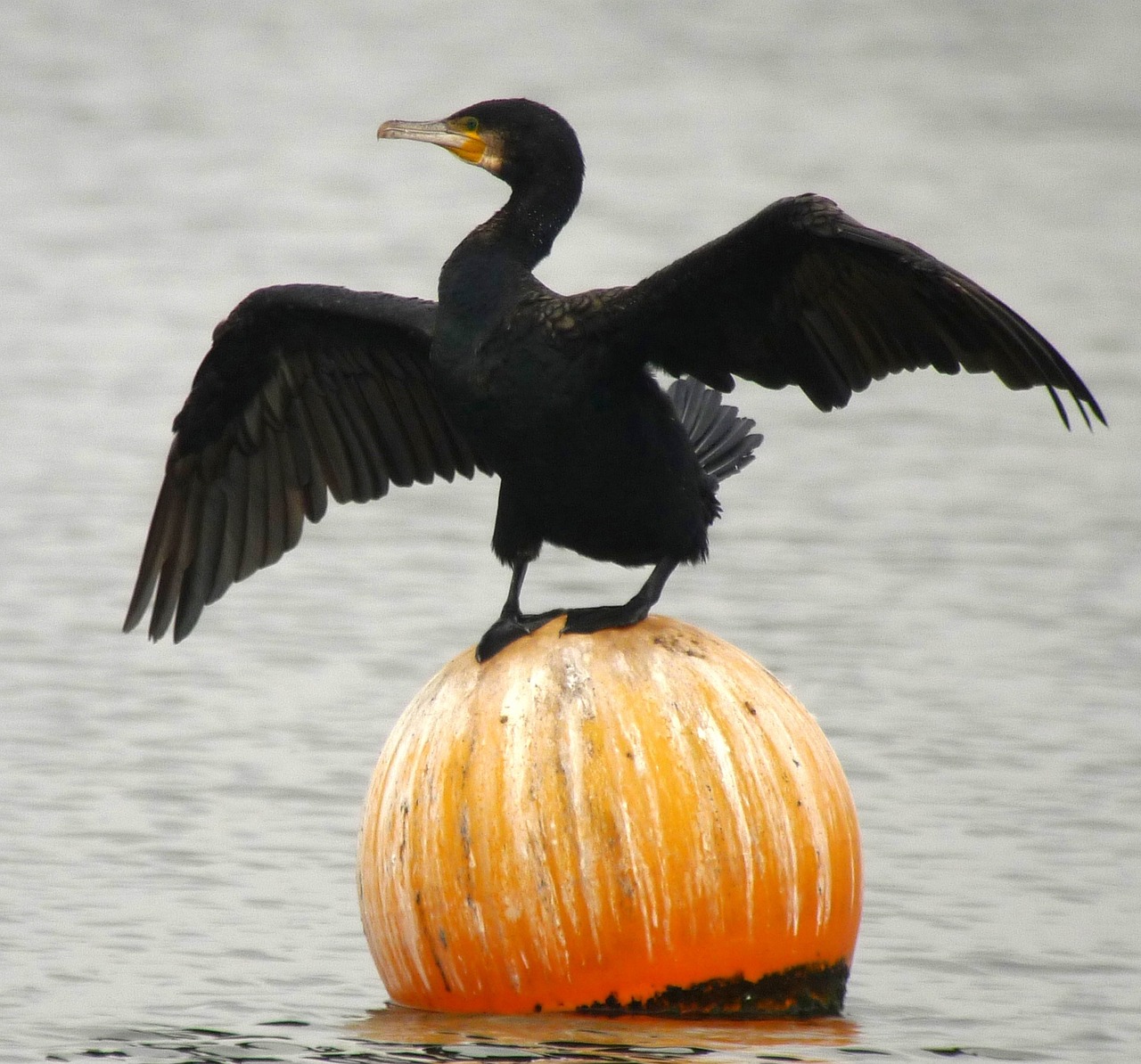
Health Considerations
When it comes to the majestic Great Dane, their health is paramount to ensuring they live a long, happy life. These gentle giants may look intimidating, but they require just as much care and attention as any other breed. Being aware of their unique health considerations can make a world of difference in how well they thrive in your home. Regular veterinary check-ups are essential, as they help catch potential issues before they become serious. But what exactly should you be looking out for?
Great Danes are prone to certain health conditions that every owner should be aware of. For instance, hip dysplasia is a common concern, particularly due to their large size and rapid growth. This genetic condition affects the hip joint and can lead to arthritis and pain. Additionally, bloat, also known as gastric torsion, is another serious condition that can affect Great Danes. Bloat occurs when the stomach fills with gas and can twist, cutting off blood supply. It’s a life-threatening emergency that requires immediate veterinary attention.
To give your Great Dane the best chance at a healthy life, it’s crucial to be proactive about their care. Regular exercise, a balanced diet, and maintaining a healthy weight can help mitigate some of these risks. A well-structured diet tailored to their needs can make a significant difference. Here’s a quick overview of what to consider:
| Health Concern | Prevention Tips |
|---|---|
| Hip Dysplasia |
|
| Bloat |
|
Moreover, nutrition plays a pivotal role in their overall health. A balanced diet rich in essential nutrients is crucial for supporting their large size and high energy levels. It’s advisable to choose high-quality dog food specifically formulated for large breeds. This not only helps in maintaining their weight but also supports their joint health and overall vitality. Remember, the right food can be the difference between a healthy Great Dane and one that struggles with health issues.
Lastly, don’t forget about mental health! Engaging your Great Dane in regular activities, socialization, and training can keep their minds sharp and spirits high. After all, a happy Great Dane is a healthy Great Dane. So, take the time to understand their needs, and you’ll be rewarded with a loyal, loving companion!
Q: How often should I take my Great Dane to the vet?
A: Regular check-ups should be scheduled at least once a year, but more frequently during their first few years of life and as they age.
Q: What kind of food is best for a Great Dane?
A: Look for high-quality dog food formulated for large breeds, focusing on balanced nutrition to support their growth and health.
Q: Can Great Danes live with other pets?
A: Yes, with proper socialization, Great Danes can coexist peacefully with other pets, often forming strong bonds.
Q: What signs should I look for that indicate my Great Dane might have bloat?
A: Signs include restlessness, a swollen abdomen, and attempts to vomit without success. If you notice these symptoms, seek veterinary help immediately.
Common Health Issues
When it comes to keeping our beloved Great Danes healthy, it's essential to be aware of some that can affect this magnificent breed. Great Danes, despite their gentle nature and affectionate temperament, are prone to certain conditions that can impact their quality of life. One of the most significant health concerns is hip dysplasia, a genetic condition where the hip joint doesn’t fit properly into the hip socket. This can lead to pain and arthritis over time, making it crucial for owners to monitor their dog's mobility and consult a veterinarian if they notice any signs of discomfort.
Another serious condition that Great Danes are susceptible to is bloat, also known as gastric torsion or torsion. This life-threatening condition occurs when the stomach fills with gas and twists on itself, cutting off the blood supply. Symptoms can include a distended abdomen, unproductive vomiting, and restlessness. It's vital for Great Dane owners to recognize these signs quickly and seek immediate veterinary assistance, as bloat can be fatal if not treated promptly.
In addition to these major concerns, Great Danes may also face other health issues, including:
- Cardiac problems: Great Danes are at risk for certain heart conditions, particularly dilated cardiomyopathy, which affects the heart's ability to pump blood effectively.
- Hypothyroidism: This condition occurs when the thyroid gland doesn't produce enough hormones, leading to weight gain and lethargy.
- Skin conditions: Due to their short coat, Great Danes can suffer from allergies and skin irritations, requiring regular grooming and attention to their skin health.
To combat these health issues, regular veterinary check-ups are essential. A proactive approach to health care can help catch any potential problems early on, allowing for timely intervention. Additionally, maintaining a balanced diet and ensuring your Great Dane gets plenty of exercise can help mitigate some of these risks. Owners should prioritize high-quality food that supports their large size and energy levels, as nutrition plays a significant role in overall health.
| Health Issue | Symptoms | Prevention/Treatment |
|---|---|---|
| Hip Dysplasia | Pain in hips, difficulty standing or walking | Regular vet check-ups, weight management, possible surgery |
| Bloat | Distended abdomen, unproductive vomiting, restlessness | Immediate vet assistance, avoid large meals |
| Cardiac Problems | Coughing, lethargy, fainting | Regular heart screenings, medication if necessary |
| Hypothyroidism | Weight gain, lethargy, skin issues | Medication, regular vet check-ups |
| Skin Conditions | Itching, redness, hair loss | Regular grooming, allergy management |
In conclusion, while Great Danes are generally healthy dogs, being aware of these common health issues can empower owners to take proactive steps in ensuring their furry friends live long, happy lives. Regular vet visits, a nutritious diet, and attentive care can make all the difference in their health and well-being.
Q: How often should I take my Great Dane to the vet?
A: It's recommended to take your Great Dane for a check-up at least once a year, or more frequently if they show any signs of health issues.
Q: What should I feed my Great Dane?
A: A high-quality dog food formulated for large breeds is ideal. Look for food that lists meat as the first ingredient and is free from fillers.
Q: Can Great Danes live in apartments?
A: Yes, Great Danes can live in apartments, but they require regular exercise and space to move around comfortably.
Q: How can I prevent bloat in my Great Dane?
A: To help prevent bloat, feed smaller meals throughout the day rather than one large meal, and avoid vigorous exercise immediately after eating.
Nutrition and Diet
When it comes to the health and well-being of your Great Dane, nutrition plays a pivotal role. These majestic giants require a diet that not only meets their energy needs but also supports their overall health. Given their size, it’s crucial to choose high-quality food that is specifically formulated for large breeds. This ensures they receive the right balance of nutrients, vitamins, and minerals essential for maintaining their strength and vitality.
Great Danes are known to have a sensitive digestive system, which means that what goes into their bowls matters. Ideally, their diet should be rich in protein to support muscle development, as well as healthy fats for energy. When selecting food, look for options that list whole meats as the first ingredient and avoid fillers like corn and soy, which can lead to digestive issues. Additionally, consider incorporating a mix of dry kibble and wet food to keep their meals interesting and palatable.
To give you a better idea of what a balanced diet looks like for a Great Dane, here's a simple breakdown of the key components:
| Component | Recommended Percentage |
|---|---|
| Protein | 20-30% |
| Fats | 8-15% |
| Carbohydrates | 30-50% |
| Fiber | 3-5% |
Alongside a balanced diet, hydration cannot be overlooked. Great Danes are prone to conditions like bloat, which can be exacerbated by drinking large amounts of water too quickly. It’s wise to provide fresh water at all times but consider offering it in smaller amounts throughout the day rather than all at once, especially after meals or vigorous exercise.
As your Great Dane ages, their dietary needs may change. Older Danes might require lower calorie food to prevent weight gain, while still ensuring they receive adequate nutrition to support their joints and overall health. Always consult with your veterinarian to tailor a diet that best suits your dog’s specific needs.
In conclusion, feeding your Great Dane a nutritious and balanced diet is crucial for their health and happiness. By paying attention to their dietary requirements and making informed choices, you can ensure that your gentle giant thrives and enjoys a long, fulfilling life with you.
- What is the best food for a Great Dane? Look for high-quality dog food formulated for large breeds, with whole meats as the primary ingredient.
- How often should I feed my Great Dane? Adult Great Danes typically do well with two meals per day, while puppies may require three to four smaller meals.
- Can Great Danes eat human food? While some human foods are safe, it's best to consult your vet before introducing any new foods to avoid digestive issues.
- How much water should a Great Dane drink? They should have access to fresh water at all times, but monitor their intake to prevent gulping too much at once.
Frequently Asked Questions
- Are Great Danes good with children?
Absolutely! Great Danes are known for their gentle and patient nature, making them excellent companions for children. They often form strong bonds with kids and are typically tolerant, which allows for safe and affectionate interactions.
- How much exercise do Great Danes need?
Great Danes require moderate exercise to stay healthy and happy. Daily walks and some playtime in a secure area are usually sufficient. However, due to their size, it’s essential to avoid overly strenuous activities, especially while they are still growing.
- What are common health issues in Great Danes?
Great Danes are prone to certain health concerns, including hip dysplasia, bloat, and heart issues. Regular vet check-ups and a healthy lifestyle can help mitigate these risks and ensure your Great Dane remains in top shape.
- Do Great Danes shed a lot?
Great Danes do shed, but their short coat makes it less noticeable compared to long-haired breeds. Regular brushing can help manage shedding and keep their coat healthy and shiny.
- How should I train my Great Dane?
Training a Great Dane can be a rewarding experience! They are intelligent and eager to please, but consistency is key. Start with basic commands and positive reinforcement methods to help them learn effectively.
- What kind of diet is best for a Great Dane?
A balanced diet is crucial for Great Danes. Look for high-quality dog food that meets their nutritional needs, focusing on protein and healthy fats to support their large size and energy levels. Always consult your vet for specific dietary recommendations.
- Can Great Danes live in apartments?
Yes, Great Danes can live in apartments, but it’s important to ensure they get enough exercise and space to move around. Their calm demeanor often makes them suitable for apartment living, provided they have daily walks and playtime.
- How much do Great Danes typically weigh?
Great Danes are known for their impressive size, with males typically weighing between 140-175 pounds and females ranging from 110-145 pounds. Their size can be intimidating, but their gentle nature shines through!



